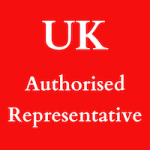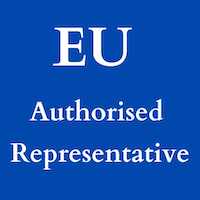Toxicological Requirements
[vc_row][vc_column width=”1/4″][vc_empty_space height=”20px”][vc_column_text]
Need tox data on an ingredient for your notification?
Request a tox profile[/vc_column_text][/vc_column][vc_column width=”3/4″][vc_column_text]
What are the TPD tox data requirements for vape products?
Article 20.2.c of the Tobacco Products Directive requires the submission of toxicological data on the ingredients of products placed on the market. Specifically, the requirements are:
> Existence of studies that inform about the chemistry and/or toxicity of emissions
> Existence of any studies relating to the carcinogenicity, mutagenicity or toxicity for reproduction of the ingredient
> Existence of in vitro and in vivo assays to evaluate the toxicological effects of the ingredient on the heart, blood vessels or respiratory tract
> Existence of an analysis of the possible addictive properties of the ingredient
> Existence of any other toxicological data not stated above
For each ingredient, details of all available toxicological studies should be compiled, summarised in a tox profile and submitted in a notification. This exercise requires a toxicological expert to sift through potentially thousands of scientific studies to extract relevant data.
If there is insufficient data on an ingredient…
Some ingredients are well-known and have been well-studied so there is adequate toxicity information whereas others have no or very little information. If only limited information on the toxicity of an ingredient is submitted there may be significant consequences for the manufacturer – the most likely being:
- Rejection of ingredient/product
- Request for more information
1. Rejection of ingredient/product
Article 20.3.e places an obligation on the Member States to ensure that, except for nicotine, only ingredients that do not pose a risk to human health are included in e-liquid formulations. Should the authorities decide that there is insufficient data to support the inclusion of the ingredient they may reject the ingredient – and effectively the product.
2. Request for more information
The authorities are more likely, however, to request that the notifier submit further toxicological data in support of the submission. If, after further literature searches there are no data from existing studies, the applicant may need to generate the toxicological data themselves via pre-clinical laboratory testing, for example. This can be an unfavourable and costly venture and other options can be explored.
Responsible manufacturer
In parallel to the notification obligations, manufactures and importers should use the data extracted from the literature search to assess the health risks posed by the formulation of their product. After all, they take full responsibility for the quality and safety of the product placed on the market and should be satisfied that the product and its ingredients do not pose an unacceptable level of risk to human health.
Prohibited ingredients
Ingredients that have been been thoroughly studied and are already known to be toxic to humans are included in a list of prohibited ingredients which can be found in national standards. As the notifications come in from submitters the authorities may, after a review of the available toxicology data, add ingredients of particular toxicological concern to the list. And so it is likely that the list will grow – rather than shrink.
NOTE: The EU manufacturing standard – currently in development – shall include the official list of prohibited ingredients. In addition to the standard, manufacturers should be minded of Article 7.6 of the Tobacco Products Directive which also presents a list of ingredients that should not be included in the formulation.
How can Medic Pro help?
We have a number of options available to manufacturers and importers seeking toxicological expert advice. Tox profiles on an ingredient can be provided for notification submission purposes. For other tox services, please contact us to discuss your requirements.[/vc_column_text][/vc_column][/vc_row]
What We Do
We are a London-based regulatory affairs consultancy providing services to the e-cigarette, cosmetic, biocide, pharmaceutical and medical device industry. We help e-cigarette companies comply with the Tobacco Products Directive and pharmaceutical companies obtain and maintain medical product licences. We also offer UKAS accredited biocide and analytical testing services.

